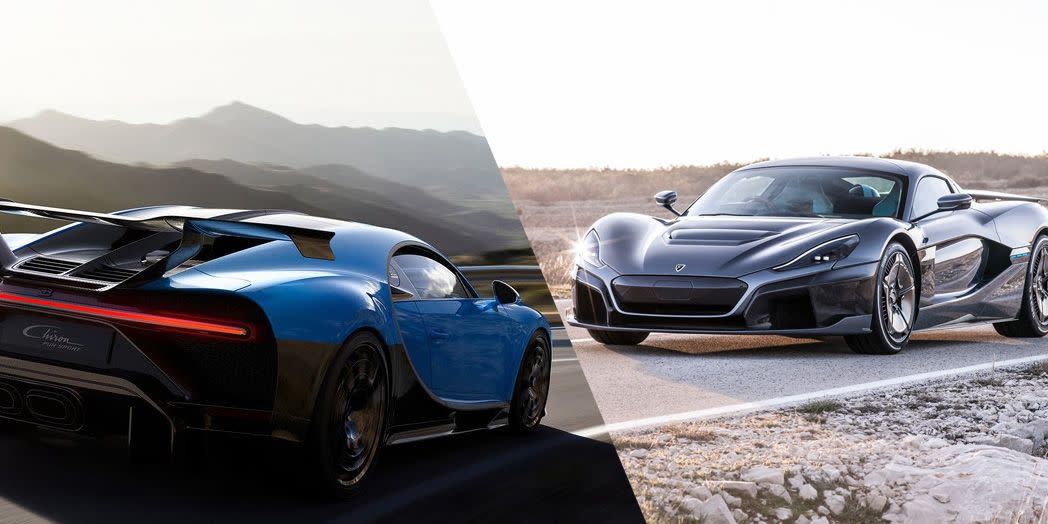VW Getting Rid of Bugatti Makes a Lot of Sense

The report that Volkswagen is selling Bugatti to upstart EV maker Rimac sounds absurd on the face of it. Getting control of 49 percent of Rimac sounds valuable, but enough to give up Volkswagen's crown jewel? Nonsense. Until you consider that, really, VW has no use for Bugatti anymore.
That's not to speak ill of the brand itself. Bugatti has accomplished incredible things, changing the game with the Veyron and one-upping the world with the 300-mph Chiron. It has been entirely successful at achieving its goals, it's just that those goals and accomplishments no longer serve VW whatsoever.
Because the first and primary purpose of Bugatti was to push the limits of technology to make the ultimate halo car, with engineering know-how trickling down for the betterment of other VW products. But it now faces two major problems. The first is that the technology it has mastered, the internal combustion engine, is no longer the future of Volkswagen. The company, in the wake of Dieselgate and tightening emissions regulations, is shunning diesel and gas, moving toward electrification. So if you want a flagship engineering house building cars that move powertrain technology forward, Rimac's already ahead of Bugatti where it counts.
The second part of Bugatti's mission is also shaky. The brand has, for the past decade and a half, been VW's halo. It was a testament to the fact that the company could build the fastest, most advanced supercars on the planet. That Volkswagen was at the forefront of technology and speed. But now, none of that seems to have a positive halo effect.
That's in no small part because of VW's never-ending Dieselgate scandal. After the company successfully duped regulators and customers the world over by implementing engine software that cleverly detected when the car was undergoing emissions testing, it's no longer ideal to draw attention to how great the company's engineers are at pushing the limits of the internal combustion engine. Plus, as the company leans on its "for the people" roots and tries to democratize electrification, building seven-figure, internal-combustion hypercars as your "halo products" doesn't quite square that circle. Especially now that the brand—popularized because of and built around speed records—has sworn off speed records, it's hard to imagine how VW could possibly extract more value from Bugatti as a halo for its empire.
All of that could be forgiven if Bugatti was a cash cow. VW is, after all, a business, which is why its push toward electrification will not kill the VW Atlas or the V-8 Porsche Cayenne or the W-12 Bentley Flying Spur yet. But the original Veyron was a massive money loser for the company, done to make a name rather than make money. The Chiron is undoubtedly cheaper to make since the Veyron had laid some of the R&D groundwork, but with such tiny production numbers it likely hardly registers on the VW balance sheet.
Contrast that with Rimac, by most accounts one of the most advanced electric vehicle technology firms on the planet. It's a smaller outfit without the name recognition of Bugatti, but VW has enough marketing money and infrastructure to turn Rimac into a true flagship brand. Or, if the company doesn't want to invest in building up the Rimac name, it's spoiled for choice when it comes to high-profile brands that could use an electric halo car. Audi, Porsche, Lamborghini, or Bentley flagship EVs all sound plausible. Regardless of which one(s) come to fruition, VW now has the technology to make a proper, world-beating, future-forward electric supercar.
That supercar will be a much better halo product. It will actually have a halo effect, bettering lesser VW group cars by advancing the company's fledgling expertise in electrification. But most importantly, a halo product only works if it represents the future of the products it stands atop. And these days, the future of Volkswagen looks more like Rimac than it does Bugatti.
You Might Also Like

